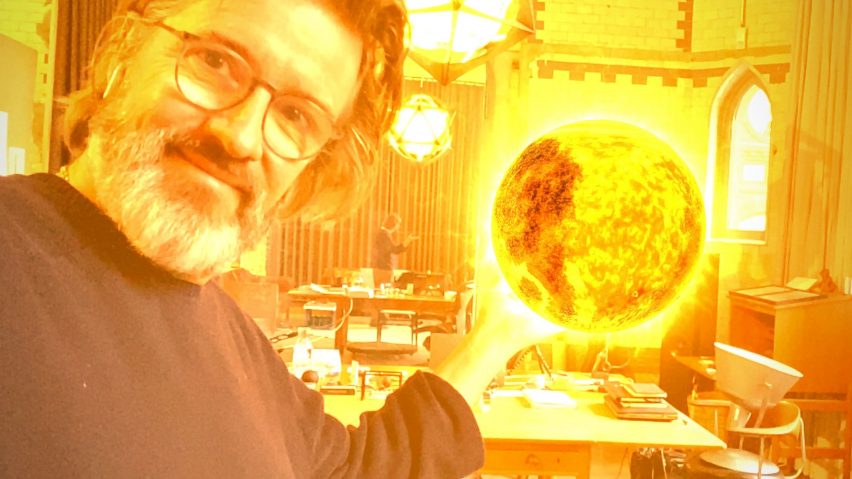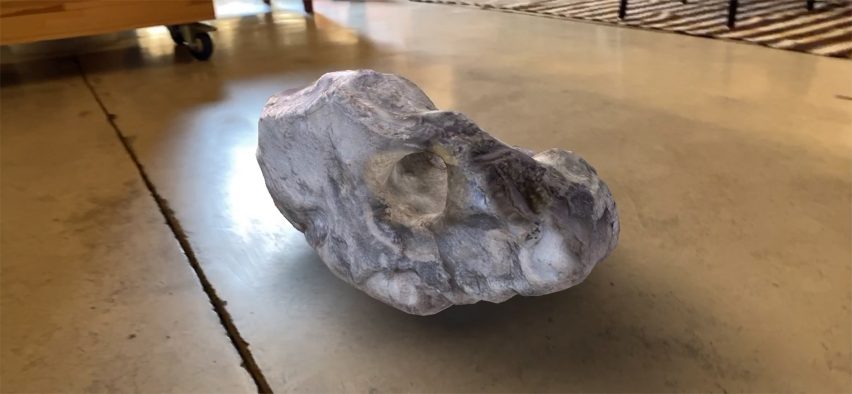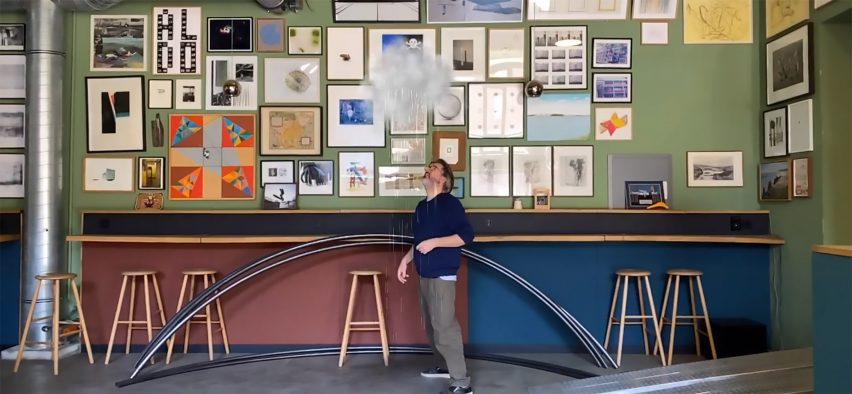
Olafur Eliasson creates augmented-reality cabinet of curiosities
Danish-Icelandic artist Olafur Eliasson is bringing rare natural matter, including a burning sun and a sprightly puffin, into people's homes with his AR Wunderkammer works.
The Wunderkammer project, which is available through an app, marks the first time that Eliasson has employed augmented reality (AR).
The artist used the technology to create extraterrestrial rocks and rare animals that viewers can experience as if they have appeared in front of them.

The audience is invited to "bring the outside in" by creating their own environment as they add AR objects, atmospheres and "imaginary friends" to their own, personal space.
The designer hopes this will allow people across the globe to digitally access art from their own homes while on lockdown during the coronavirus pandemic.
View this post on Instagram
Titled Wunderkammer, the project takes its name from the German word for "cabinets of curiosities" – a trend that began in Europe in the mid-sixteenth-century to keep collections of exotic objects.
Each of the works depict aspects of nature that we often take for granted.
This includes elements such as the sun, rainbows or rainclouds, as well as insects and rare birds like the puffin, and various objects including a compass.
Eliasson often creates works that encourage their viewers to think about climate change and the environment.
His 2018 Ice Watch installation saw him extract 30 blocks of glacial ice from the waters surrounding Greenland and place them in public spaces across London, where they were left to melt.
A retrospective exhibition featuring three decades of work by the artist was also on show at London's Tate Modern in July 2019, and included a tunnel of fog and other works designed to make people consider their impact on the planet.

Wunderkammer was made in collaboration with Acute Art – a virtual and augmented reality production studio that specialises in creating digital artworks.
The artworks will be available to experience for free through the Acute Art app and the artist plans to release a further series at a later date.
"Can today's immersive technologies, virtual reality (VR) and augmented reality (AR), change and expand the ways we experience art?" asked Acute Art director Daniel Birnbaum.
"I think the potential is enormous and that that these tools will be essential to new forms of international visual culture and exchange," he continued. "Acute Art was founded on the vision of democratising art and bringing it to places where it could not be before."
"It's always been our ambition to reach audiences outside of the art world’s traditional institutions. In these difficult times, our aspiration has gained new relevance and urgency," added Birnbaum. "The new works by Olafur are offered to anyone, anywhere."